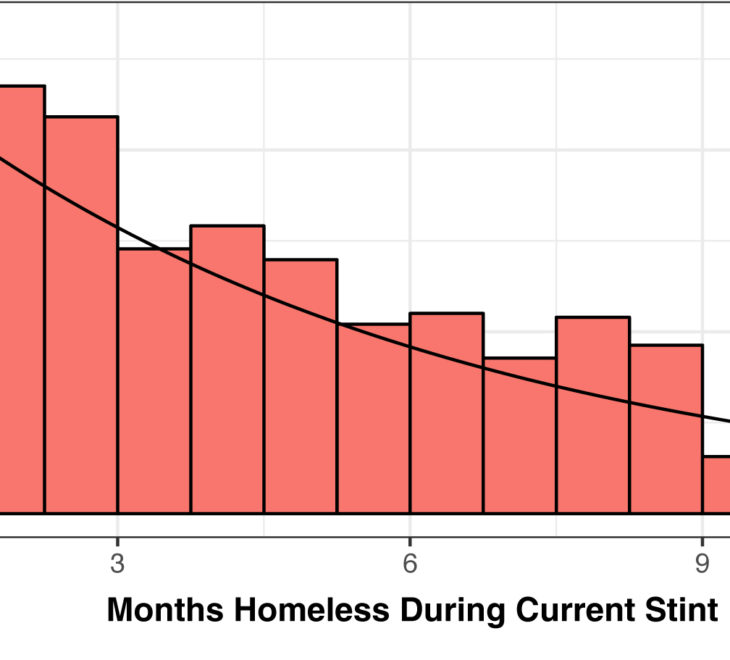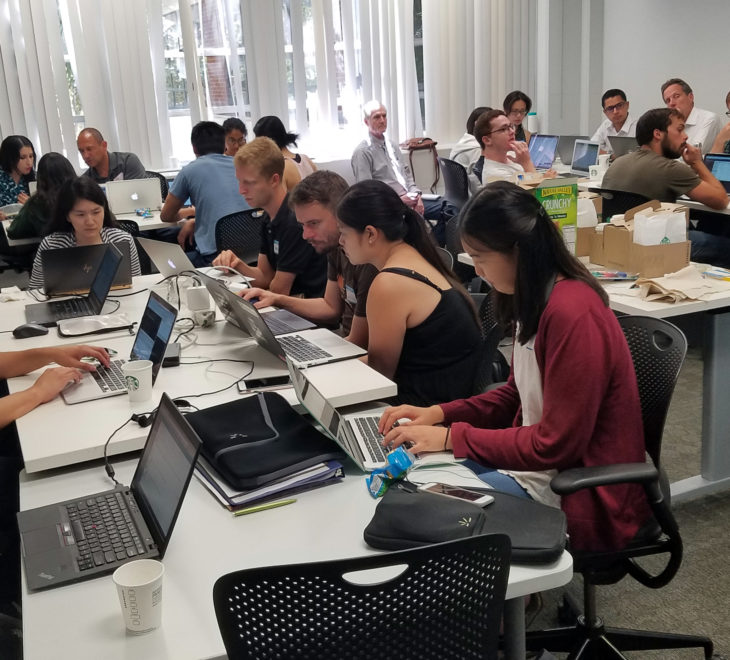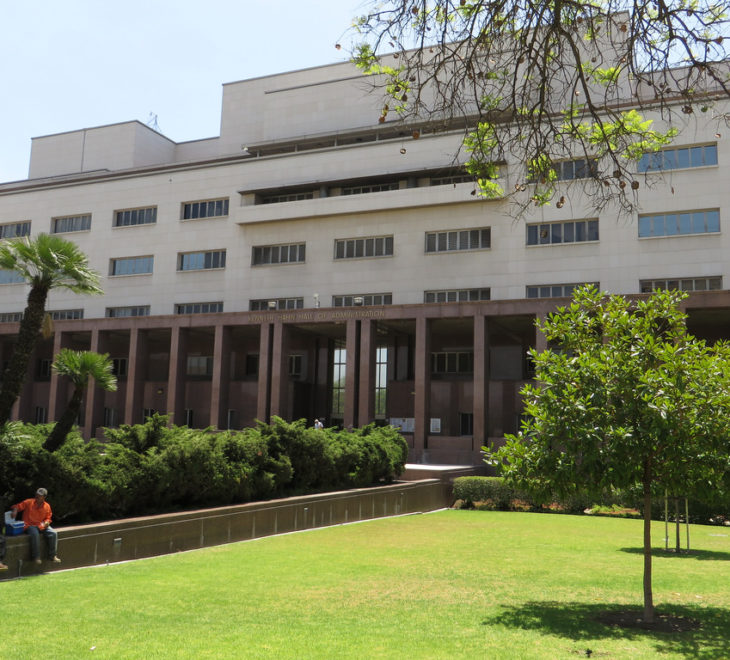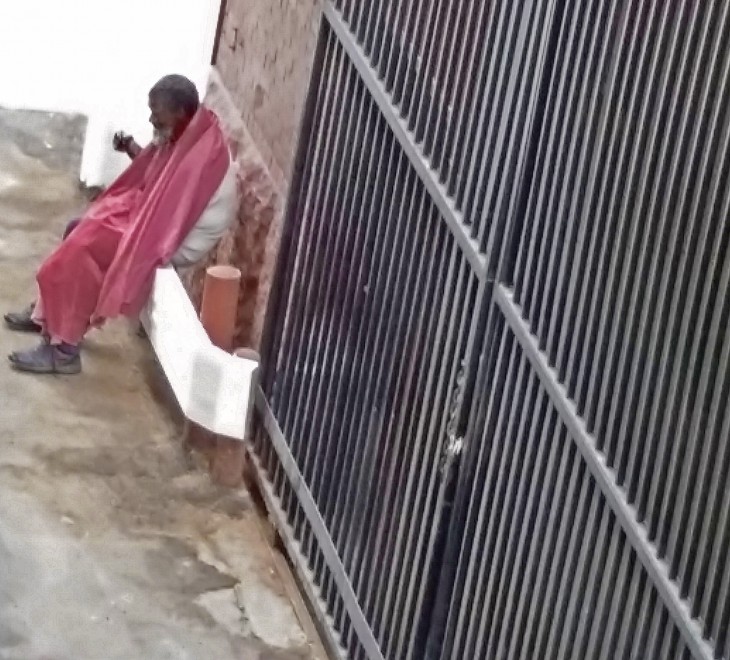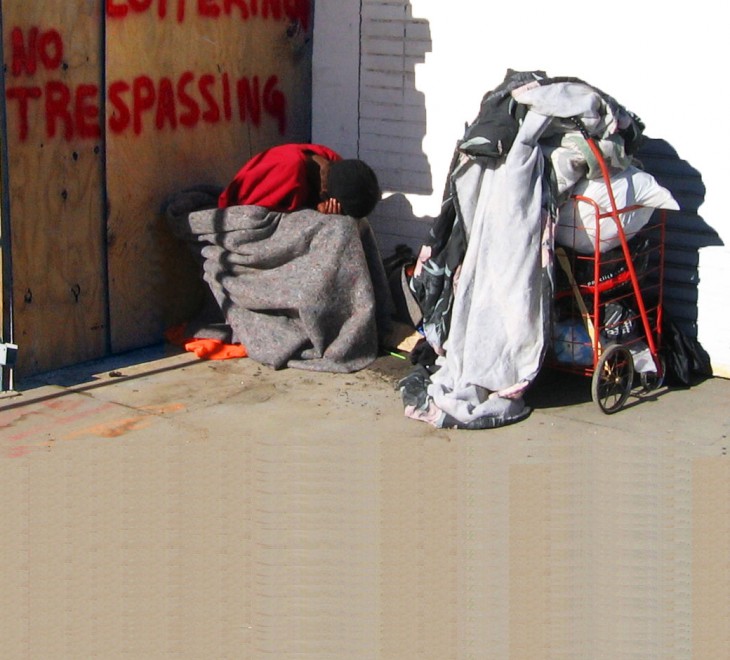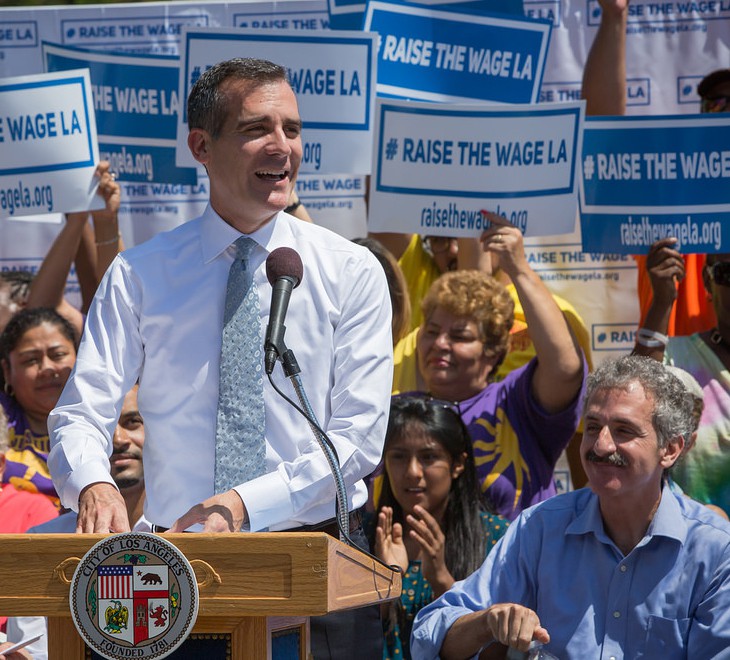FOR IMMEDIATE RELEASE: July 9, 2018
CONTACT: Daniel Flaming, danflaming@economicrt.org, 213-892-8104 ext 204
Jane Carlen, jcarlen@economicrt.org, 213-892-8104 ext 207
Volunteer data scientists in Los Angeles and San Francisco will collaborate to answer the question: who experiences homelessness in Los Angeles over the course of a year?
LOS ANGELES – The Economic Roundtable is partnering with the non-profit data-for-good organization DataKind to build knowledge around long-term dynamics of the homeless population in Los Angeles. Together, they are holding a simultaneous data dive in Los Angeles and the Bay Area on the weekend of July 21-22, 2018. The Los Angeles event will be held at USC. The San Francisco event will be held at Cal State San Francisco.
At the data dive, volunteer data scientists ranging from university students to senior researchers will be collaborating to answer the question: “Who experiences homelessness in Los Angeles over the course of a year?”
This is an unanswered question. The answer is important for understanding the total scope of homelessness and for identifying possibilities for helping homeless individuals earlier rather than later.
The volunteers have jobs in sectors ranging from social science research to entertainment to metallurgy. Leondra James, a royalty analyst in the music industry who is one of the volunteers, said, “As a data enthusiast and humanitarian, I’ve been actively seeking the opportunity to utilize my passion for data to make the world a better place.”
While chronically homeless people are often the face of homelessness in Los Angeles County, preliminary work by the Economic Roundtable shows that far more of the county’s residents fall in and out of homelessness over time, often living in their cars, in a temporary shelter or on the streets for days as opposed to years.
The Roundtable’s preliminary model of the entire population that experiences homelessness over the course of a year indicates that on a given night, about half of the homeless individuals have been homeless for over a year. However, that group only accounts for a fifth of the annualized population. On the other hand, it is likely that half of the annualized population was homeless for only two months or less.
“Street homelessness often dominates the perception of homelessness and discussions around intervention and prevention,” said Jane Carlen, the Economic Roundtable statistician who developed the preliminary model, “but what our data says is that we need to expand our understanding of short-term homelessness.”
A better understanding of who is at high risk of staying homeless can guide services to help those individuals achieve a permanent exit before the problem is catastrophic. The difference between the point-in-time and annualized populations is under-acknowledged, but extremely important for policymakers and service providers.
“There is a first day of homelessness for individuals who go on to become chronically homeless,” said Dan Flaming, President of the Economic Roundtable. “If we can identify and help these individuals early on, there will be far less economic, social, mental health, and legal wreckage in their lives.”
The data dive will improve upon the simple annualized population model developed by the Economic Roundtable and expand the scope of the model. It will also analyze population demographics and identify measures of uncertainty in the estimates. And it will create dynamic visualizations to make the findings broadly accessible to the public.
Individual records of people in homeless shelters and on the street from 2011 to 2017 will be analyzed in the data dive. Paul Beeman, the volunteer data scientist who cleaned and organized these records for the data dive, said, “The data we have on Los Angeles County’s homeless population is far from perfect, but still provides valuable information that can help to create a better understanding of the dynamics of homelessness in our communities.”
The schedule for the data dive is:
Saturday, July 21
8 am to 10 pm Data scientists collaborate to analyze data
Los Angeles – USC
San Francisco – Cal State SF
Sunday, July 22
8 am to 3:30 pm Data scientists collaborate to analyze data
Los Angeles – USC
San Francisco – Cal State SF
3:30 pm to 5:00 pm Groups of researchers report their findings
Los Angeles – USC
San Francisco – Cal State SF
Wednesday, July 25
10 am Release of interactive data visualization tools describing the population experiencing homelessness
Economic Roundtable
315 W. 9th St., Suite 502
Los Angeles, CA 90015
The Economic Roundtable is a nonprofit urban research organization based in Los Angeles that carries out large-scale data analyses to identify actionable solutions to social, economic and environmental problems. Their website is http://economicrt.org/.
DataKind brings high-impact organizations together with leading data scientists to use data science in the service of humanity. This collaboration between data science and social sector experts builds evidence-based decision making. Their website is http://www.datakind.org/.



